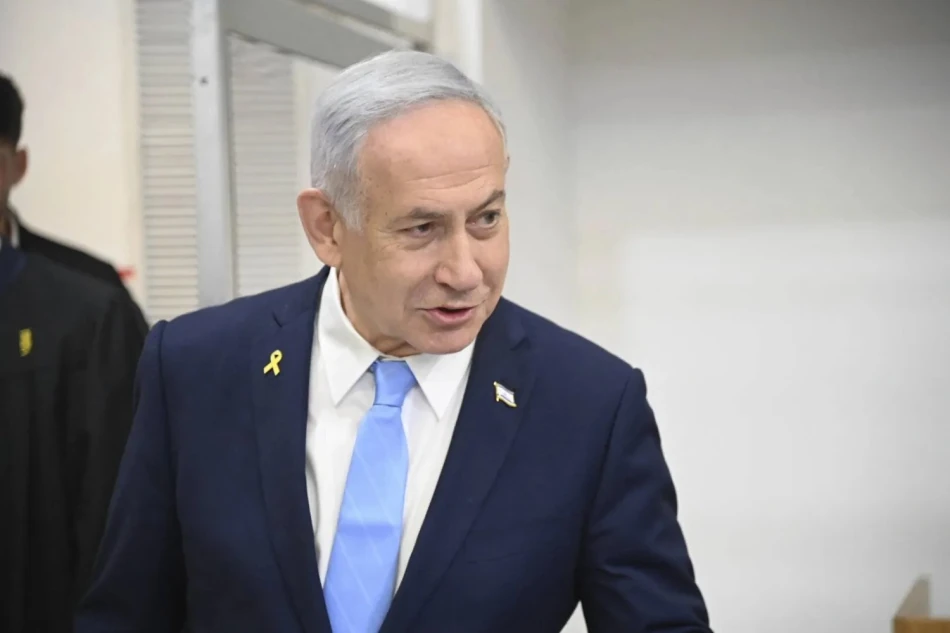
Netanyahu: Hamas Rejects Ceasefire Proposal, Insists on Staying in Gaza
Netanyahu Blames Hamas for Ceasefire Stalemate as Gaza War Drags Into Second Year
Israeli Prime Minister Benjamin Netanyahu has publicly accused Hamas of rejecting ceasefire proposals, claiming Israel accepted terms offered by US Middle East envoy Steve Witkoff and international mediators. The statement comes as diplomatic pressure mounts on both sides to end a conflict that has devastated Gaza and left Israeli hostages in captivity for over a year.
Competing Narratives Over Failed Negotiations
In a video statement posted on X (formerly Twitter), Netanyahu directly challenged media reports suggesting Israel had rejected a Gaza ceasefire proposal. "These reports echo Hamas propaganda, but they are not accurate," he said. "We accepted the deal proposed by Witkoff, as well as the version presented by the mediators, but Hamas is the one that refused."
The Israeli leader's comments reflect a familiar pattern in Middle East diplomacy, where both sides routinely blame each other for negotiation failures while international mediators struggle to bridge fundamental gaps in their positions.
Strategic Calculations Behind the Deadlock
Hamas's Survival Strategy
Netanyahu outlined what he sees as Hamas's core motivation: organizational survival. According to the Israeli PM, Hamas seeks to maintain its presence in Gaza and force Israeli military withdrawal, positioning itself to rearm and launch future attacks. This assessment aligns with Israel's broader strategic concern that any ceasefire could simply provide Hamas with breathing room to rebuild its military capabilities.
Israel's Unchanging War Objectives
Netanyahu reaffirmed Israel's three-pronged war strategy: securing the release of hostages, dismantling Hamas as a governing and military force, and ensuring Gaza cannot pose future security threats. These maximalist goals have remained consistent since the conflict began, despite international calls for more limited objectives that might facilitate negotiations.
International Mediation Under Pressure
The involvement of Steve Witkoff, President Trump's special Middle East envoy, signals renewed American diplomatic engagement. Unlike the Biden administration's approach, Trump's team appears focused on direct, high-pressure negotiations rather than gradual confidence-building measures.
The reference to "mediators" likely includes Qatar and Egypt, which have served as primary intermediaries throughout the conflict. Their continued involvement suggests the traditional Arab mediation framework remains active despite changing US leadership.
Domestic Political Calculations
Netanyahu's emphasis on meeting with hostage families reflects intense domestic pressure. Israeli public opinion remains divided between those prioritizing hostage release through negotiation and those supporting continued military action to achieve broader strategic goals.
The Prime Minister's mention of a "very important and successful visit" following "a great victory over Iran" appears designed to bolster his security credentials while deflecting criticism over the prolonged hostage crisis.
Regional Implications
The Gaza ceasefire negotiations carry implications far beyond the immediate conflict. A successful deal could stabilize the broader Middle East, potentially facilitating Saudi-Israeli normalization and containing Iranian influence. Conversely, continued deadlock risks further regional escalation and undermines US credibility as a mediator.
For international observers, the current stalemate highlights the fundamental challenge of negotiating with parties whose core objectives remain mutually exclusive. Until either side moderates its demands or external pressure forces compromise, the cycle of accusation and counter-accusation is likely to continue.
Most Viewed News

 Sara Khaled
Sara Khaled






